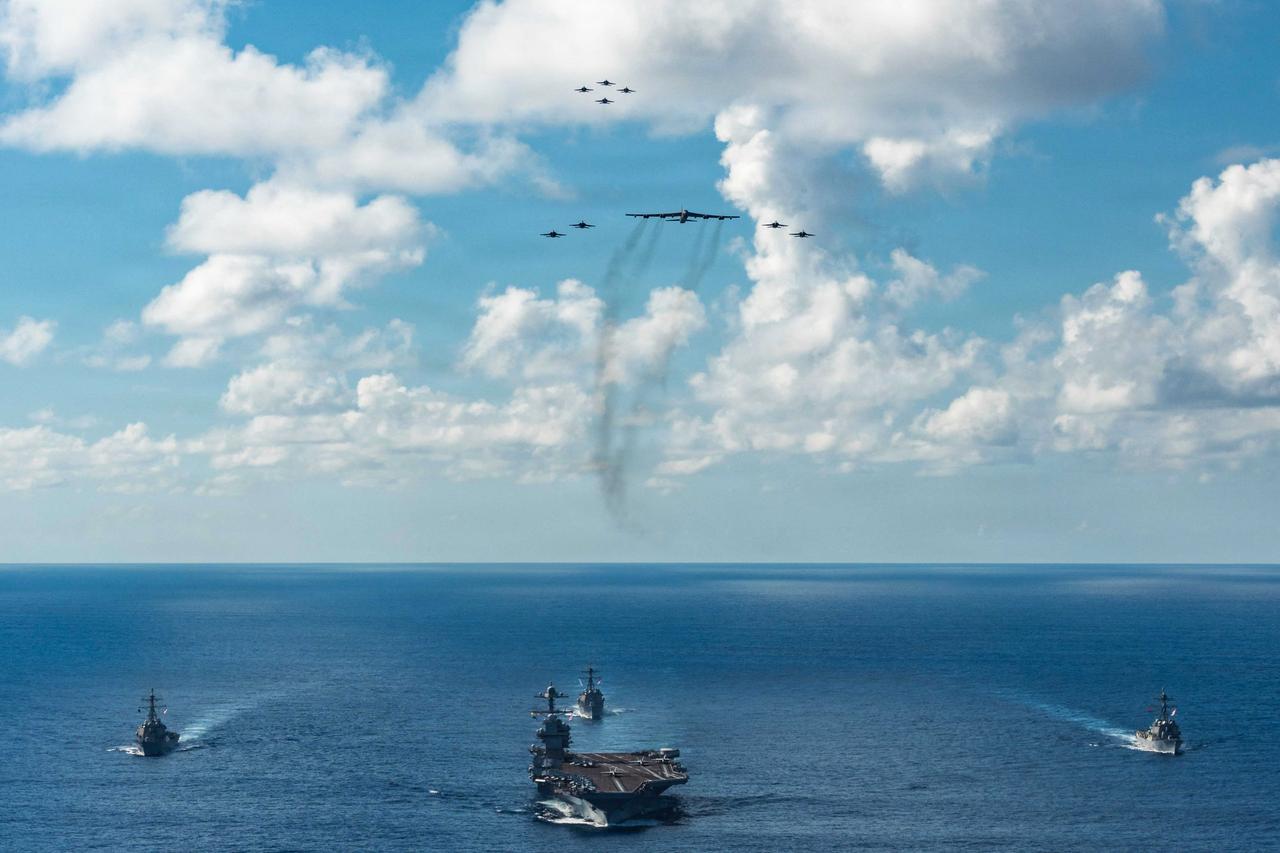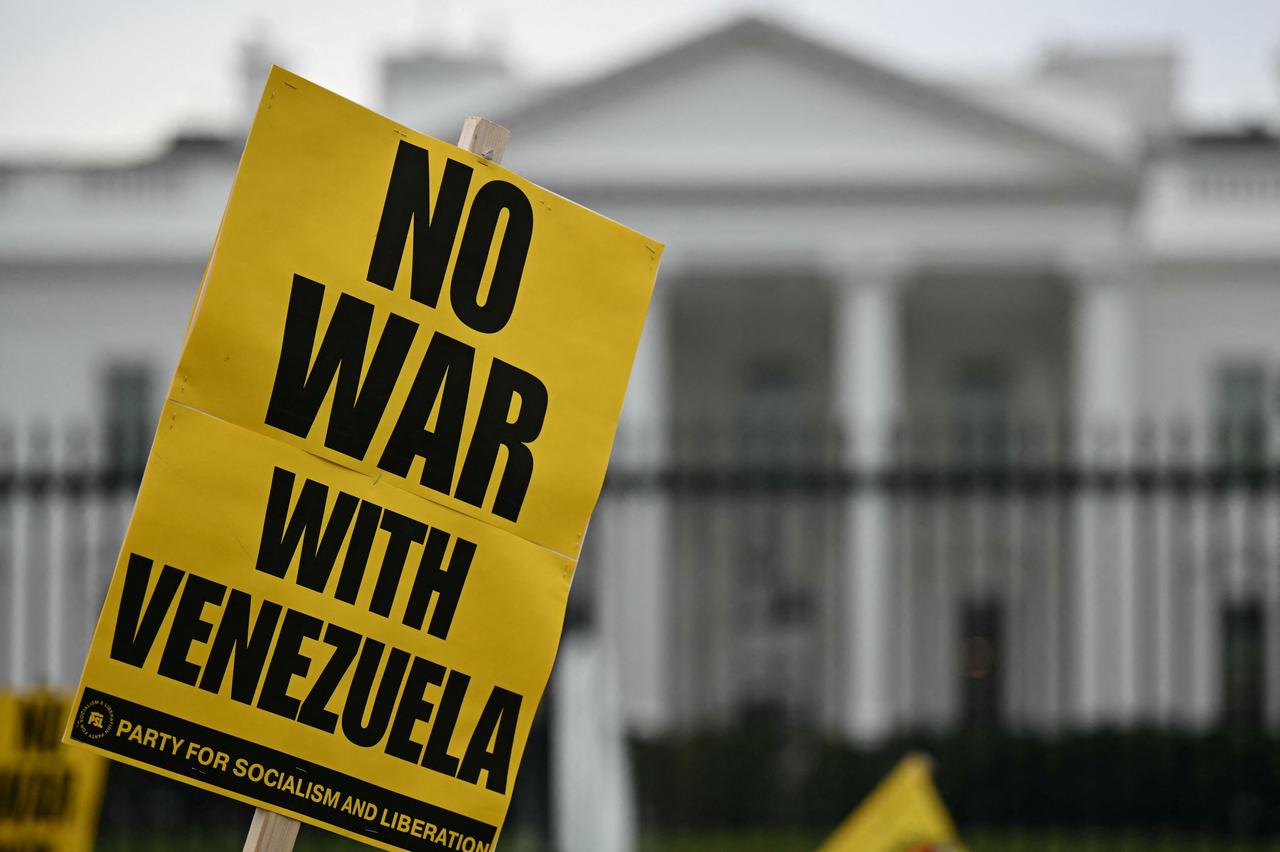
The United States has positioned its most advanced aircraft carrier in the Caribbean Sea as part of an expanded anti-narcotics operation that has escalated tensions with Venezuela and raised questions about potential military intervention against the Maduro government.
The USS Gerald R. Ford Carrier Strike Group entered the Caribbean following President Donald Trump's directive to combat transnational criminal organizations, US Southern Command announced Sunday. The deployment, dubbed "Operation Southern Spear," comes as American forces conducted another deadly strike against an alleged drug vessel in the eastern Pacific on Saturday, killing three suspects.
The carrier strike group includes the USS Gerald R. Ford, two guided-missile destroyers, and additional support vessels and aircraft. Southern Command, which oversees US military operations in Latin America and the Caribbean, said the deployment aims to "dismantle Transnational Criminal Organizations and counter narco-terrorism in defense of the Homeland."
The military buildup joins several warships already operating in the region and coincides with joint training exercises between US and Trinidadian forces that began Sunday, the second such drills in less than a month near Venezuela's coast.

Saturday's strike in the eastern Pacific brings the death toll to at least 83 people since the anti-trafficking military campaign launched in September, according to a tally by AFP of publicly released figures. The United States has conducted more than 20 strikes targeting vessels in both the Caribbean and eastern Pacific.
However, American military officials have released no evidence supporting their claims that those killed were actually involved in drug trafficking. Legal experts characterize the deaths as extrajudicial killings, even if the targets were confirmed traffickers operating in international waters.
The lack of transparency surrounding the operations has drawn scrutiny as the campaign expands in scope and geographic reach, with no independent verification of the identities or activities of those killed.
Venezuelan President Nicolas Maduro sharply criticized the US military presence Saturday, calling the joint exercises with Trinidad and Tobago "irresponsible." Caracas views the American buildup as an explicit threat to Venezuelan sovereignty.
The United States does not recognize Maduro as Venezuela's legitimate president and has offered a $50 million bounty for his capture to face drug cartel leadership charges. Trump has held meetings with military advisors about potential options regarding Venezuela, fueling speculation about possible intervention.
Asked about his plans Friday aboard Air Force One, Trump told reporters he had "sort of" made up his mind but declined to elaborate. "I can't tell you what it is, but we made a lot of progress with Venezuela in terms of stopping drugs from pouring in," he said.
In a CBS News interview, Trump suggested military action against Venezuela was unlikely but predicted Maduro's tenure would end soon. The US military has steadily increased its presence in Trinidad and Tobago, an island nation located just miles off Venezuela's northern coast, providing a strategic staging area for operations in the region.